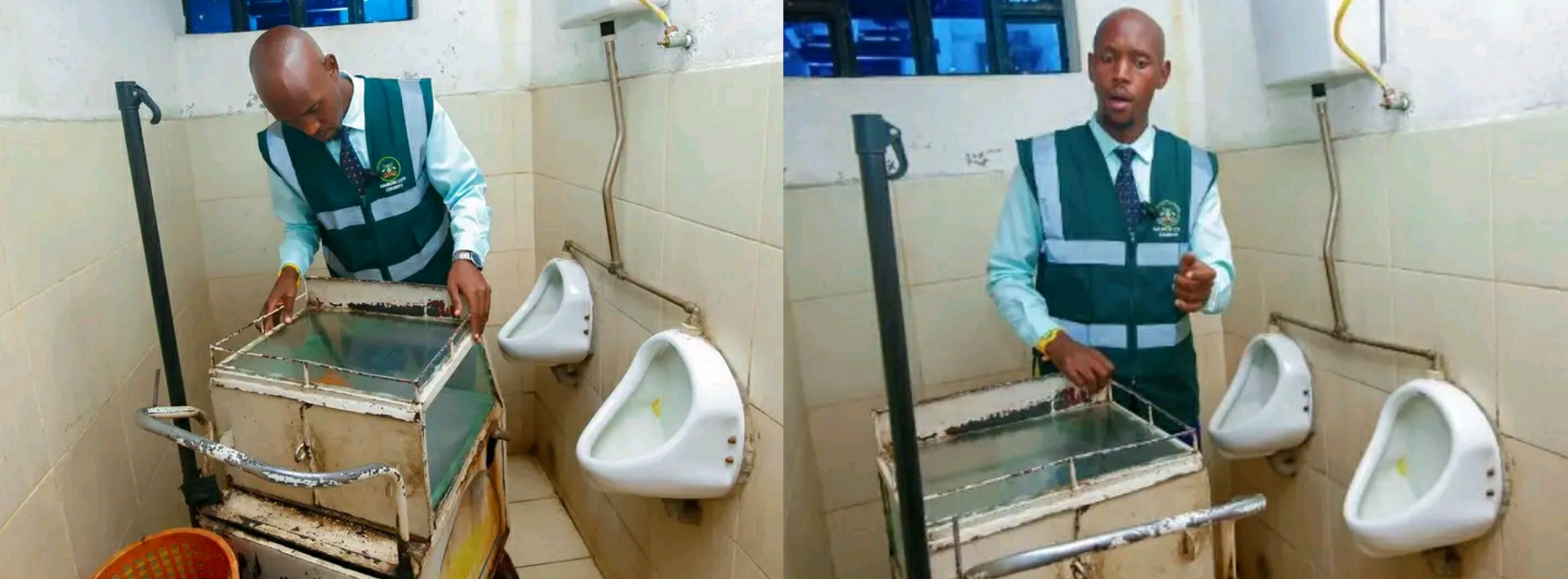
- Nairobi authorities discovered food trolleys, known as “smocha,” stored in public toilets along Thika Road, raising serious health concerns.
- Environment Chief Officer Geoffrey Mosiria responded to a tip-off from citizens about unsanitary food storage practices.
- The discovery comes amid ongoing public health challenges, including a recent cholera outbreak in the country.
In a recent effort to enhance food safety in Nairobi, authorities uncovered alarming practices involving the storage of popular street food trolleys, referred to as “smocha,” in public toilets along Thika Road. This revelation highlights significant health risks associated with unsanitary food handling and storage conditions.
The term “smocha” refers to popular Kenyan street food that typically includes proteins like smokies, kebabs, and boiled eggs wrapped in chapati. The name is derived from the combination of beef smokies and chapatis. The troubling discovery was made late Wednesday night, October 23, 2024, when Nairobi County’s Environment Chief Officer, Geoffrey Mosiria, acted on a tip-off from concerned citizens.
Mosiria expressed serious concerns over the unsanitary conditions.
“This shocking discovery has raised serious public health concerns, prompting authorities to take immediate action, promising to bring those responsible to account.” Said the officer.
He publicly thanked the individual who reported the alarming situation at the KEHNA toilets, emphasizing the importance of community vigilance in food safety matters.
During the investigation, Mosiria confronted the toilet’s manager about allowing vendors to store food trolleys in such unhygienic conditions,
“The hygiene standards we observed here are alarming. Food meant for human consumption should never be stored in such conditions. The risk of contamination is extremely high, and this practice could lead to the spread of foodborne illnesses.” He noted.
Reports indicate that vendors typically operate late into the night and have been using public toilets for overnight storage of their food trolleys. This incident is part of a broader effort by Mosiria and city council officers to address unsanitary food storage practices, as additional trolleys have been found stashed in back alleys and poorly ventilated storerooms throughout Nairobi’s Central Business District (CBD).
The uncovering of unsanitary food storage practices in Nairobi underscores the urgent need for improved food safety regulations and practices. With ongoing public health challenges, authorities and citizens alike must prioritize hygiene and safety in food handling to prevent the spread of foodborne illnesses and protect public health.






